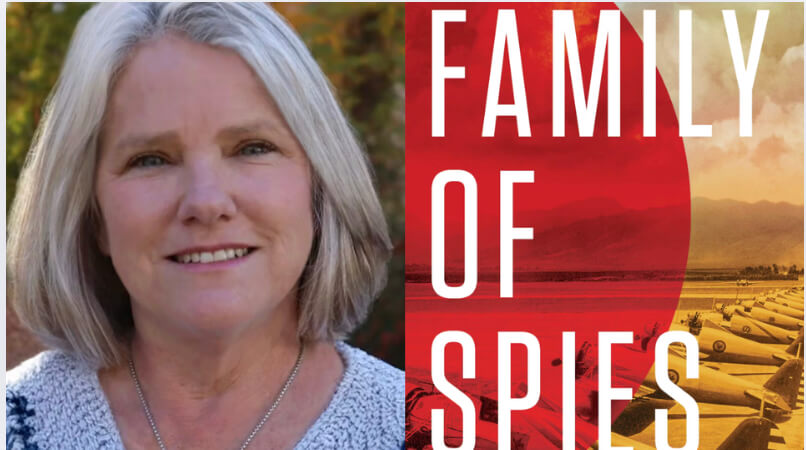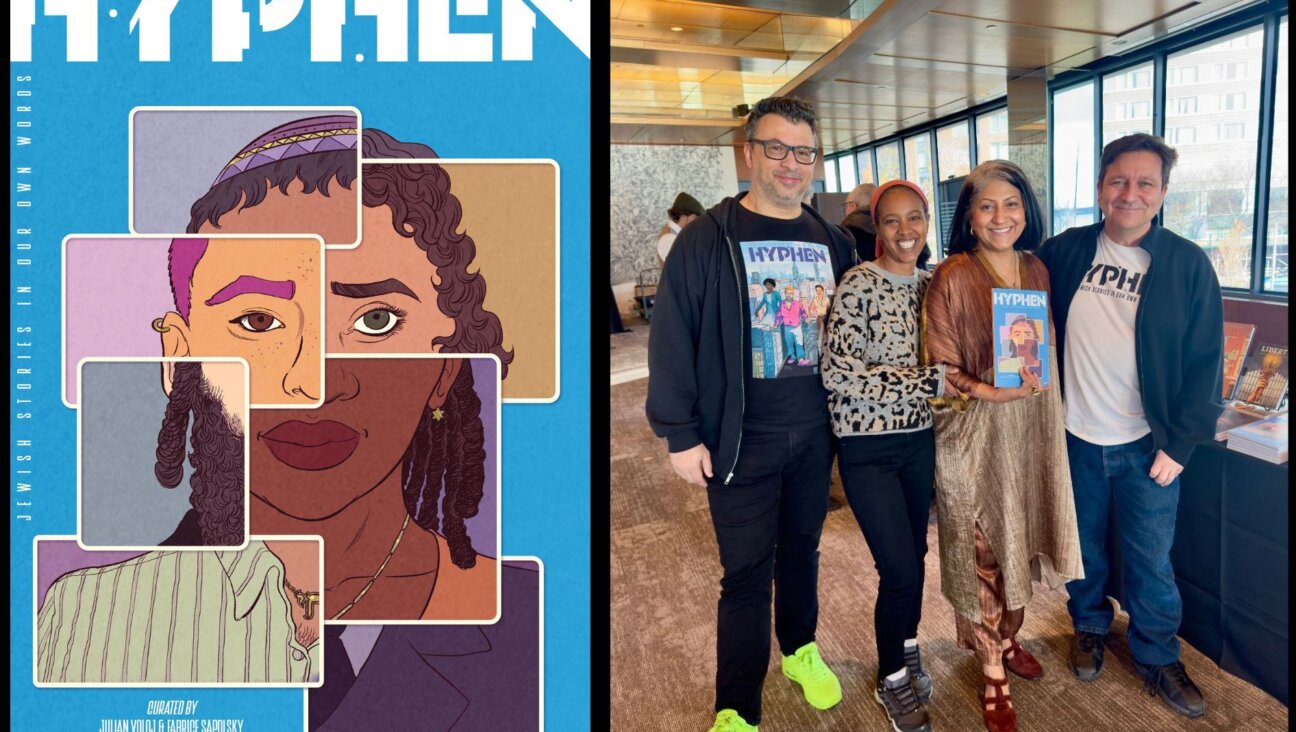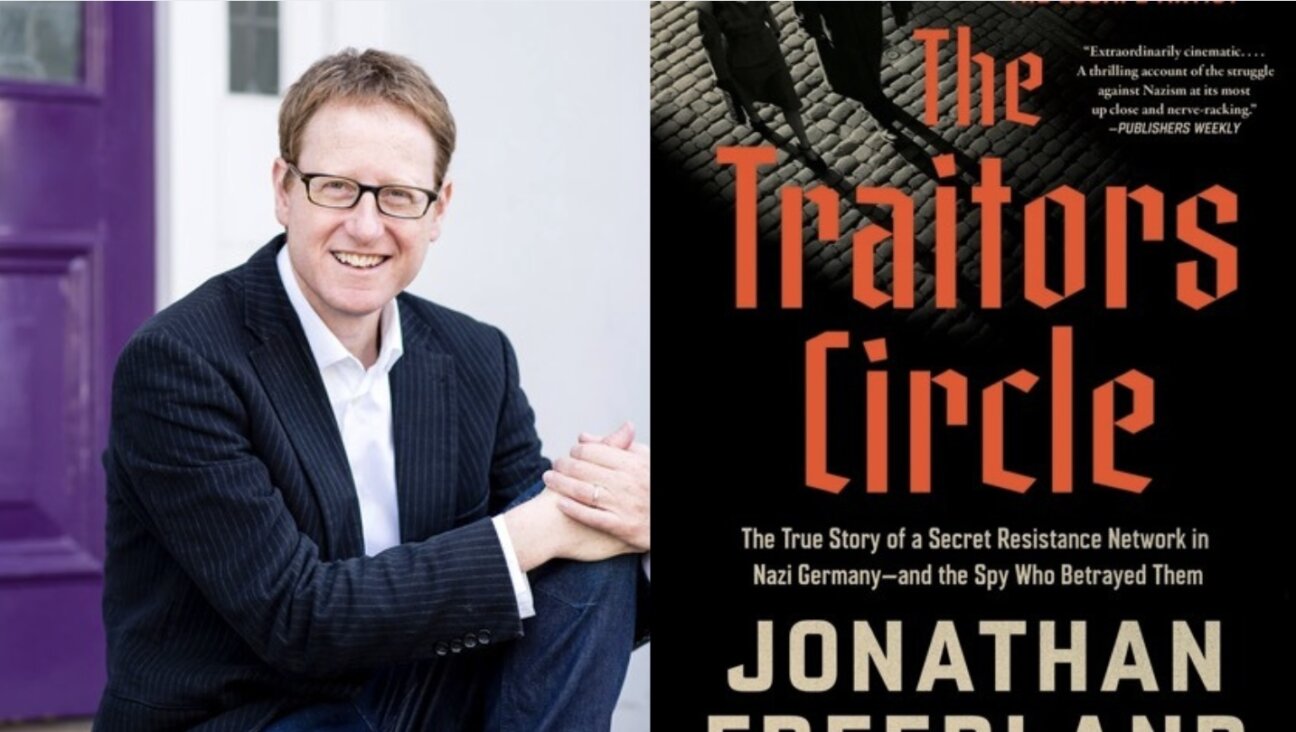Dreaming at the Movies

Graphic by Angelie Zaslavsky
Earlier this week, Ilan Mochari wrote about The Who and Jewish summer camp and the autobiographical elements in his novel, “Zinsky the Obscure” (Fomite Press). His blog posts are featured on The Arty Semite courtesy of the Jewish Book Council and My Jewish Learning’s Author Blog Series. For more information on the series, please visit:
When it comes to 20th-century Jewish authors, it’s Bellow, Roth, and Salinger who generally grab headlines. But their immediate predecessors — Delmore Schwartz and Nathanael West — worked in an era that will always captivate me. The term “bygone time” gets tossed around a lot, but to read Schwartz and West is to truly step into a different America — the America of the 1930s — than the one that Bellow, Roth, and Salinger chronicled.
For one thing, World War II had not happened. For another, the television had not yet taken over as a standard domestic appliance. But the movies and radio were in full swing, forever altering the way we consume words, images, advertisements, and stories. Schwartz and West had to compete with these newfangled media. In one of my favorite passages from “Miss Lonelyhearts,” West, through the prism of that novel’s narrator, laments how the noun dreams has lost its aura in this new era:
“Although dreams were once powerful, they have been made puerile by the movies, radio and newspapers. Among many betrayals, this one is the worst” (39).
Almost as bad, for West’s narrator, is the way consumerism and vanity have encroached upon dreams as a once-sacred trope:
“Guitars, bright shawls, exotic foods, outlandish costumes—all these things were part of the business of dreams. He had learned not to laugh at the advertisements offering to teach writing, cartooning, engineering, to add inches to the biceps and to develop the bust” (22).
There’s no way to prove that Schwartz had these passages in mind when he wrote his legendary story, “In Dreams Begin Responsibilities,” two years later. But if the title is merely an unwitting homage to Lonelyhearts, the thematic overlaps are too powerful to ignore. To wit: Schwartz’s entire story takes place not only in a movie theater, but also in a theater that is the setting of a dream the narrator is having.
The movie depicts the clumsy courtship of the narrator’s parents. The theatergoers are all along for the romantic ride, with the exception of the narrator, who disturbs the other patrons with his protestations: “Don’t do it. It’s not too late to change your minds,” he shouts at the screen, after his father proposes to his mother. Naturally, the theatergoers wish he would just shut up and let them enjoy the film. They’ve paid good money to see it (thirty-five cents, in 1935).
In many ways, Schwartz and West set the stage for “The Catcher in the Rye” (1951), in which Holden Caulfield spends many a paragraph ridiculing the implausible idealism of mainstream American films. All of that — the march against phoniness — is generally credited to Salinger, and for good reason: His contrarian novel cracked the mainstream, giving vent to hypocrisies that most readers felt but never expressed. But let us remember that when it comes to the movies — and their corruption of dreams — West and Schwartz were there first.
Ilan Mochari’s novel, Zinsky the Obscure (Fomite Press), is now available. He is Chief Writer for The Build Network and a contributor to Cognoscenti, the online magazine for Boston’s NPR News Station. Read more about Ilan here.
The Jewish Book Council is a not-for-profit organization devoted to the reading, writing and publishing of Jewish literature. For more Jewish literary blog posts, reviews of Jewish books and book club resources, and to learn about awards and conferences, please visit www.jewishbookcouncil.org.
MyJewishLearning.com is the leading transdenominational website of Jewish information and education. Visit My Jewish Learning for thousands of articles on Judaism, Jewish holidays, Jewish history and more.















